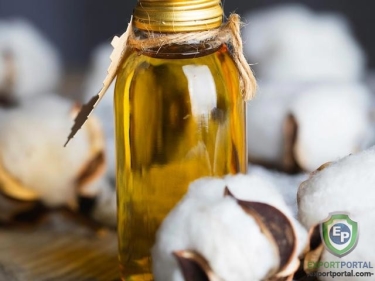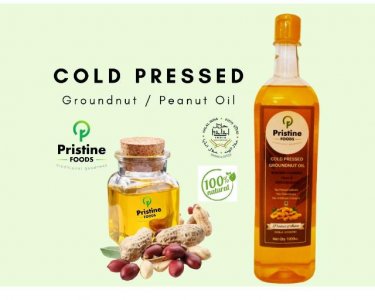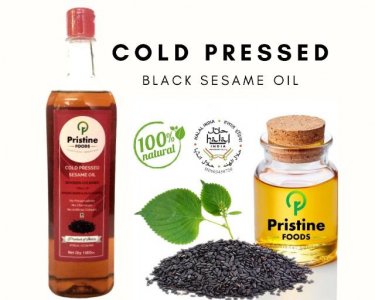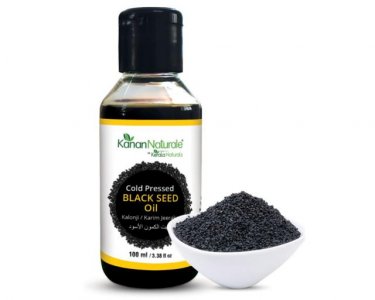Couldn't find the product you want?
Fill out this form to request the product.
Export from India
The economy of India is the 7th-largest economy by market exchange rates, India is one of the world's fastest-growing economies. The long-term growth prospective of the Indian economy is moderately positive due to its young population, corresponding low dependency ratio, healthy savings and investment rates, and increasing integration into the global economy.
India is one of the largest textile exporters. Major agricultural products include rice, wheat, oilseed, cotton, jute, tea, sugarcane, and potatoes. Major industries include telecommunications, chemicals, pharmaceuticals, biotechnology, food processing, steel, transport equipment, cement, mining, petroleum, machinery, and software. Major exports of India include petroleum products, textile goods, jewelry, software, engineering goods, chemicals, and leather manufactures.
The top export partners of India are the United States, the United Arab Emirates, China, Singapore and the United Kingdom. In recent years, India has become one of the biggest refined product exporters in Asia with petroleum accounting for around 20 percent of total exports.
The pharmaceutical industry in India is among the significant emerging markets for global pharma industry.
India has a growing automotive industry as well.
India's top exports are:
- Oil
- Gems, precious metals, coins
- Vehicles
- Machines, engines, pumps
- Organic chemicals
- Pharmaceuticals
- Cereals
- Iron and steel
- Clothing (not knit or crochet)
- Electronic equipment
Import to India
The Indian economy has the potential to become the world's 3rd-largest economy by the next decade, and one of the largest economies by mid-century. Historically, India has classified and tracked its economy and GDP as three sectors - agriculture, industry and services. Agriculture includes crops, horticulture, milk and animal husbandry, aquaculture, fishing, sericulture, aviculture, forestry and related activities. Industry includes various manufacturing sub-sectors. India's definition of services sector includes its construction, retail, software, IT, communications, hospitality, infrastructure operations, education, health care, banking and insurance, and many other economic activities.
India is a member of the Commonwealth of Nations,the South Asian Association for Regional Cooperation,the G20,the International Monetary Fund,the World Bank, the World Trade Organisation,the Asian Infrastructure Investment Bank,the United Nations and the New Development BRICS Bank.
India is heavily dependent on crude oil imports, with petroleum crude accounting for about 34 percent of the total inward shipments. India imports also gold and silver, machinery, electronic goods and pearls, precious stones and semi-precious stones and chemicals. The top import partners of India are China, Saudi Arabia, the United Arab Emirates, Switzerland and Iraq.
Seed oils are vegetable oils obtained from the seeds of plants, fruits and vegetables. The most famous seed oils are sunflower oil, canola oil, and sesame oil. With the diversity of oil types, to buy seed oils will be quite a choice. Almost all seed oils are used as both cooking oils and as SVO or to make biodiesel.
Used for different purposes, oils have been part of human culture for many centuries. Although many plant parts may yield oil, in commercial practice, oil is extracted primarily from seeds. The extracted oil can then be purified and, if required, refined or chemically altered. There is a big demand on seed oils nowadays, and the manufacturers all over the world sell or buy sunflower oil, sesame oil, or other seed oils to satisfy the need.
Corn oil is one of the most common cooking oils. It is used as salad dressing, in margarine, mayonnaise, prepared goods like spaghetti sauce and baking mixes, and as an oil to fry prepared foods like potato chips and French fries. Grape seed oil is used in cooking and cosmetics. Sesame oil is now widely used as a cooking oil, and as a massage oil as well.
Jojoba oil is found as component of many cosmetic products, especially those marketed as being made from natural ingredients. In particular, such products commonly containing jojoba are lotions and moisturizers, hair shampoos and creams with jojoba oils. Or, the pure oil itself may be used on skin, hair, or cuticles.
Argan oil is gaining a reputation both as an ingredient in high-end, personal-care products and as a heart-healthy gourmet product. In Morocco, argan oil is used to dip bread in at breakfast or to drizzle on couscous or pasta.
Coconut oil has various applications as food or in cosmetics. Cottonseed oil has traditionally been used in foods such as potato chips. Macadamia oil is sometimes used in food as a frying oil or salad oil, and in cosmetic formulations as an emollient or fragrance fixative.
Castor oil is used in the manufacturing of soaps, lubricants, hydraulic and brake fluids, paints, dyes, waxes and polishes, nylon, pharmaceuticals and perfumes.
Rapeseed is grown for the production of animal feed, vegetable oil for human consumption, and biodiesel; leading producers of rapeseed oil include the European Union, Canada, China, India, and Australia.
Almond oil is good for application to the skin as an emollient, and has been traditionally used by massage therapists to lubricate the skin during a massage session. Almond oil can also be used as a wood conditioner of certain woodwind instruments, such as the oboe and clarinet.
All seed oils are extremely popular and used worldwide. Export Portal is a great place to selling seed oils online, as well as byuing seed oils, and connecting sellers and buyers of this product.
Customs requirements of India
Indian Customs Contact Information
Website: http://www.cbec.gov.in/
Email: jain.ajay@nic.in
Address: Custom House, near all India Radio, Navrangpura, Ahmedabad-380 009
Telephone: +91 27544630
India is a country situated in South Asia bordered by the Indian Ocean, the Arabian Sea, the Bay of Bengal, Pakistan, China, Nepal, Bhutan, Myanmar and Bangladesh. It is a member of the East Asia Summit, World Trade Organisation, International Monetary Fund, Asian Infrastructure Investment Bank and South Asian Association for Regional Cooperation (SAARC).
Import Procedure:
In case of Electronic Data Interchange no formal Bill of Entry is filed as it is generated in the computer system, but the importer is required to file a cargo declaration having prescribed particulars required for processing of the entry for customs clearance. In case of non-EDI more documents are also generally required.
Green Channel facility
Some major importers have been given the green channel clearance facility. They have to make a declaration in the declaration form at the time of filing of Bill of Entry. The appraisement is done as per normal procedure except that there would be no physical examination of the goods. Certain goods are prohibited under Foreign Trade.
The average customs duty is around 15%. Alcohol, wines, pet foods, some processed food products, and some manufactured goods are attracting higher customs tariff; however the tariff rate keeps on changing although the general trend is downwards. Some customs preferences are granted to certain goods imported, subject to conditions. You can consult a list on the website of the Ministry of Finance of India. Preferential rates also apply to imports from those countries with which India has signed special Trade Agreements.
Export Procedure:
For clearance of export goods, the exporter or his agents have to undertake the following formalities:-
Registration
The exporters have to obtain PAN based Business Identification Number (BIN) from the Directorate General of Foreign Trade prior to filing of shipping bill for clearance of export goods.
The exporters are also required to register authorised foreign exchange dealer code (through which export proceeds are expected to be realised) and open a current account in the designated bank for credit of any drawback incentive.
Whenever a new Airline, Shipping Line, Steamer Agent, port or airport comes into operation, they are required to be registered into the Customs System.
The exporters intending to export under the export promotion scheme need to get their licences/DEEC book etc, registered at the Customs Station.
Processing of Shipping Bill
In case of export by sea or air, the exporter must submit the 'Shipping Bill', and in case of export by road he must submit 'Bill of Export' in the prescribed form containing the prescribed details such as the name of the exporter, consignee, invoice number, details of packing, description of goods, quantity, FOB value, etc. Along with the Shipping Bill, other documents such as copy of packing list, invoices, export contract, letter of credit, etc. are also to be submitted.
Let Export Order
After the receipt of the goods in the dock, the exporter may contact the Customs Officer designated for the purpose and present the checklist with the endorsement of Port Authority and other declarations along with all original documents. Customs Officer may verify the quantity of the goods actually received and thereafter mark the Electronic Shipping Bill and also hand over all original documents to the Dock Appraiser, who may assign a customs officer for the examination of the goods. If the Dock Appraiser is satisfied that the particulars entered in the system conform to the description given in the original documents, he may proceed to allow "let export" for the shipment.
Product certification, labelling and packaging
Labelling
Outer containers should bear consignee and port mark and be numbered (to accord with packing list) unless their contents can be otherwise readily identified. Gross weight must be shown on two faces.
Packaging
Packing should be strong and should guard against extreme heat and humidity in summer and possible storage in the open and pilferage. Steel strapping is recommended.
Special certificates
Livestock imports must be accompanied by a sanitary certificate issued and certified by an approved authority in the country of origin.
Plants, plant products and leaf tobacco require phytosanitary certificates issued by an approved authority in the country of origin and certified by an approved organisation.
Additionally, leaf tobacco must be accompanied by a special certificate stating that the tobacco is free from ephestia elutella or that the pest does not exist in the country of origin. Any shipment of tobacco leaf arriving without the above certificate will be examined by an Indian Government inspector and a fee charged.
Used clothing requires a certificate of fumigation issued by an approved authority in the country of origin.
Port wine requires a certificate indicating alcoholic content and spirits may need a certificate of maturity.
Documents for import/export:
Commercial invoice
A minimum of 4 copies is required and must be signed by the supplier in exporting country. The invoice must show details such as:
- country of origin
- consignee's name
- number and date of letter of credit and import licence number
- terms of payment
- name of carrier
- number
- description and identifying marks of outer containers
Insurance
Bill of lading
Minimum of two copies normally required. To Order bills are also acceptable.
Freight charges must be stated separately and quantities must be indicated in metric terms.
Import reference number and letter of credit number are to be shown.
Must indicate the name and address of the applicant and the issuing bank.
Packing list
Certificate of origin
Issued by local Chamber of Commerce (three copies normally required).
Sources:
http://www.dov.gov.in/newsite3/clearance_procedure.asp
http://howtoexportimport.com/Export-customs-clearance-procedures-and-formalitie-146.aspx
http://www.quantaco.com/download/Bonnici%20India%20PRESENTATION.pdf



